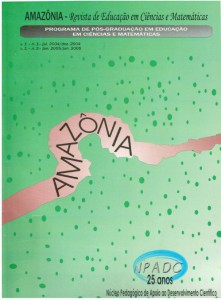Science Education initiation and the understanding of scientific phenomena: the function of non-formal activities
DOI:
https://doi.org/10.18542/amazrecm.v1i0.1465Keywords:
science education, methodology, scientific phenomena, non-formal, outside-of-the-classroom activitiesAbstract
Research evaluates the development of scientific initiation among Basic Level students as they are stimulated to experience cognitive processes in the production of knowledge. Such processes are a strategy to build significant knowledge. Informal teaching (non-formal and outside of the classroom activities) contributes to education outside the borders of the classroom promoting experiments that allow greater development and creativity through an interactive type of learning. Carrying out research and presenting its results, make young scholars improve their communication skills as well as allows them to exchange and build new conceptions about scientific knowledge. Thus, they are able to acquire an integral vision and understanding of the world. Reality is unveiled through information, knowledge, technique and theory based on social demand rather than their imposition on society. Demand for knowledge and use of theory and practice have a dialectic relationshipReferences
OAIGEN, Edson Roberto. A influências das atividades não-formais e extraclasse na Iniciação à Educação Científica. Dissertação de Mestrado. UFSM-RS. outubro de 1990.
OAIGEN, Edson Roberto. Tese de Doutorado: “ Ações Extraclasse e não-formais: uma política para formação de pesquisadores”. UFSM/RS/UNICAMP. Abril de 1995.
OLIVEIRA, Betty A. et alli, Socialização de saber escolar. São Paulo, SP. Ed. Cortez. Aut. Associados, 1985.
PERRENOUD, P. Ensinar: agir na urgência, decidir na incerteza. 2. ed. Porto Alegre: ARTMED, 2001.
RANGEL, Mary. Representações e Reflexões sobre o Bom Professor. Petrópolis: VOZES, 1994.
SIMSON, Olga e Org. Educação Não-Formal - Cenários da Criação. Campinas: UNICAMP, 2001.



